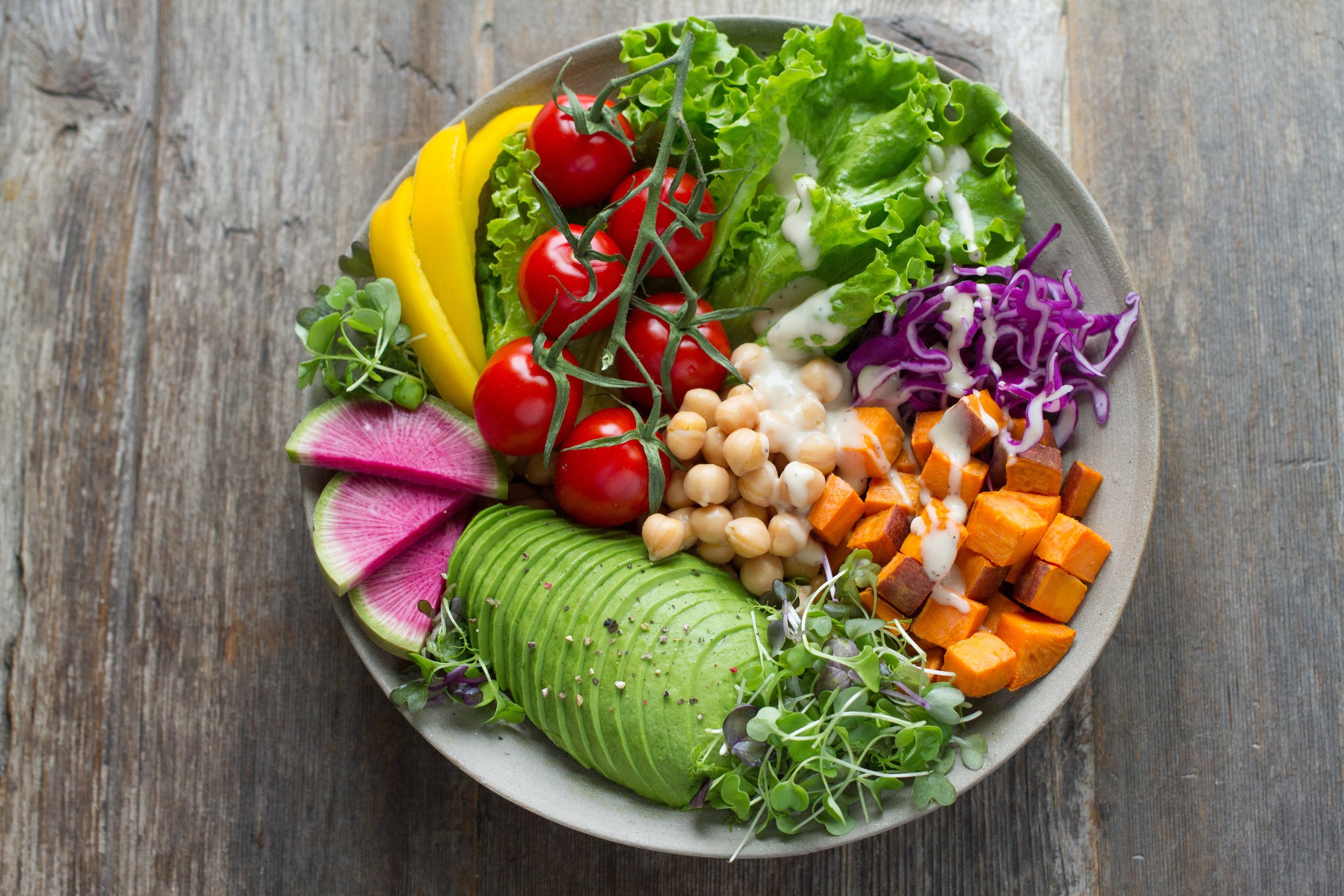The tenth principle of Intuitive Eating is: Honor Your Health—Gentle Nutrition. When working through, integrating and processing the other nine principles of Intuitive Eating, you will find there is nothing prescriptive about what to eat. When you are immersed in the process of intuitive eating, you are the expert on what your body wants and needs.
The more you tune into your body, develop awareness and pay attention to the cues and signals from your body, the more you know what foods serve your body and your mind and what foods do not. You know how you feel when you overeat, under eat and when you’ve eaten just what your body and mind needs. The truth is that there is no one right way for everyone to eat. Foods that might make one person feel great might make another feel terrible. When you are intuitively eating you are able to make these assessments and make choices based on what is best for your body.
One of the most challenging elements of intuitive eating is developing the ability to trust yourself with food. To not just know what your body wants and needs, but to feed your body what it wants and needs. If you have a long history of dieting, most likely you feel that certain trigger foods create an automatic response to eat them or overeat them and that pulls you away from the attunement you’ve worked to create with your body. This causes uncertainty and keeps your relationship with food in a challenging space. When you let yourself eat what your body wants and needs you will listen to the subtle and the obvious cues your body sends you about the foods you eat. The key is to remain mindful and tuned into your body in order to consistently make the choices that serve your body.
When you are fully in tune with your body’s wants and needs you know what makes you feel good in mind body and spirit. This is where the gentle nutrition element comes in within this process of intuitive eating. Our bodies are designed to assimilate the nutrients from whole foods. We need protein, vitamins, minerals, fats, fiber and carbohydrates to be well, feel well and live well. Your body is literally made up of the food that you eat. Your food becomes your cells, tissues and organs, the more nutrient dense your diet, the more these cells, tissues and organs will thrive. The more that your body thrives the more energy, vitality and mental wellbeing you will experience.
When you honor your health, you begin to focus on what to eat, not what not to eat. When you live in a mindset of nourishment and honoring your health, you focus on ensuring that you provide your body with the nutrients it needs on a daily basis—through the foods that you eat—so that you can truly feel vital and healthy in mind, body and spirit.
When you consider what you typically eat in a day, you might note where the nutrients that your body needs to thrive are coming from? How many servings of vegetables, fruits and plant-based foods are you taking in every single day? When you construct a way of eating that focuses on what to eat versus what not to eat, you can ensure that you satisfy your taste buds and your body. When you consider how you will nourish yourself and feel well daily and follow through with how you want to feel, you will create a sense of accomplishment and feel the difference in how your body functions and feels every day.
When you are eating plenty of veggies, fruits, seeds, nuts, proteins and making them taste delicious with lively herbs and spices, you will feel satisfied and satiated. When you feel satisfied and satiated you experience fewer cravings and notice when cravings are emotionally driven more easily. When you focus on what to eat and not what not to eat, naturally you will fill your plate with more nutrient dense foods and there just won’t be the same space for less nutrient dense foods.
This is not about perfection or feeling guilty if some of the things you choose to eat are not super nutrient dense. You will not become nutritionally deficient from one meal or snack; the focus is more about the daily choices you make over time. This process is about focusing on nourishing your body. There may be room for snacks and treats that are not super nutrient dense, however, if you know that you are feeding your body what it needs to thrive, you will begin to create more balance and feel in tune and make choices based on what your body wants versus what you might be craving.
When you are eating well you will feel well. When you are eating mostly junky processed foods devoid of nutrients you most likely will feel junky. When you are eating in a balanced and nonrestrictive manner you will feel more balanced. When you focus on how you want to feel the choices become more and more evident when you are considering what to eat, how to construct a meal and how each choice you make when it comes to food can reflect and support how you want to feel in mind, body and spirit.



